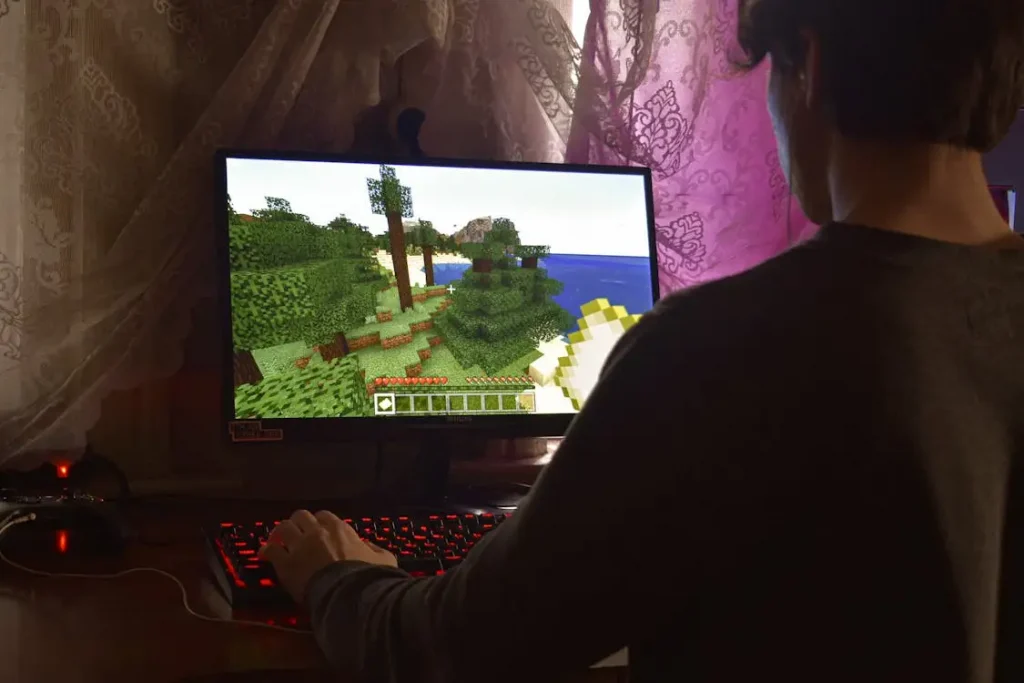Admin
I am the admin of BR Softech PVT LTD - an Award-winning Mobile game development company. My thesis is to work with hard-bit and get the best Exposure. I have driven by the spirit of entrepreneurship and dream to build a billion-dollar-company.

Did you know that 3.38 billion people played video games in 2023? That’s a lot of players! And the number is growing by over 6.3% every year. Despite this, gaming often gets a bad rap.
Many people still think it’s a time-waster or a source of stress. But the truth is, video games can actually help you manage stress and emotions. In fact, a recent poll that surveyed nearly 13,000 gamers across 12 countries found that 71% of players use video games as a stress reliever. And 64% turn to them to cope with everyday challenges.
So, why is gaming so powerful? Well, certain types of video games can serve as a much-needed escape, helping you forget about pain, stress, or other mental health struggles, if only for a while.
In this article, we’ll take a closer look at how gaming can become a tool for mental well-being.
Table of Contents
Video games can offer you a healthy distraction from emotional pain by taking your mind off the weight of your struggles.
Research has shown that games can be powerful tools in treating mental health conditions like PTSD, anxiety, and addiction. They pull you into another world, giving you a sense of control and focus when life feels out of balance.
What makes video games unique in this way is their ability to engage you fully, providing immersion that traditional therapies sometimes lack.
This level of engagement can also help with physical pain management. In fact, games have been used to distract patients from pain during medical procedures, offering a temporary break from discomfort.
The immersive nature of gaming helps shift your attention, providing a sense of relief when you need it most. The focus required to play can shift attention away from discomfort, providing a form of pain management.
This idea of using distraction to cope with pain is important, especially when you consider how common it is for people to rely on medication for pain relief. However, long-term use of pain medications, including prescription opioids, can lead to dependency.
Only if that was it, what’s even more concerning is that medications like Suboxone, which are used to treat opioid addiction, also come with their own set of risks.
A well-known side effect of Suboxone is severe tooth decay. If you or someone you know has suffered dental damage after using Suboxone, you might be eligible to file a Suboxone tooth decay lawsuit.
As pointed out by TorHoerman Law, opioid addiction is a major problem across the country, and medications designed to treat it shouldn’t harm a person’s dental health in the process.
If you find yourself in this unfortunate situation, get in touch with an experienced lawyer who has experience in filing lawsuits against drug manufacturers. They can help you determine your options.
Video games can also help sharpen your mind. Research shows that playing certain types of games can significantly improve cognitive functions like mental flexibility, planning, and working memory. But how does this work? Video games challenge your brain by requiring quick thinking,
problem-solving, and multitasking. When you play, your brain processes visual information, makes decisions in real time, and plans ahead. This constant mental exercise enhances skills like visual working memory, which helps you remember and use visual information.
Games also engage your visuospatial processing—the ability to understand how objects move in space. This can improve your performance in real-world tasks, like driving or navigating unfamiliar areas.
The same study also implies that video games can boost fluid intelligence, which helps you adapt to new situations, and verbal working memory, aiding your ability to recall and manipulate words in conversation.
In short, gaming trains your brain to be sharper and more adaptable, all while keeping you entertained.
We don’t talk enough about how gaming is a great way to tap into the social side of our brains in powerful ways. Gaming can also help you connect with like-minded people. 82% of U.S. gamers say gaming has helped them meet new friends. That’s not all.
Around 50% of gamers worldwide play online with others on a weekly basis, while more than a third engage in gaming sessions with friends or family in person. These interactions allow you to connect, collaborate, and strengthen social bonds, which can lift your mood and reduce stress.
When you play multiplayer games, you’re engaging in social interactions that mimic real-world connections, even though you’re physically apart.
This works because our brains are wired to seek connection. Humans are social creatures, and socializing with others—be that face-to-face or through technology—releases feel-good hormones like oxytocin.
Multiplayer games like Fortnite or World of Warcraft give you the chance to team up with people from all over the world, share experiences, and create friendships.
Anyone who is dealing with feelings of loneliness or disconnection can benefit greatly from this sense of community.
Who knew that gaming could be more than just a way to pass the time? By playing, you’re not only having fun—you’re also giving your brain a workout. The next time you pick up the controller, remember that you are doing more than just playing. You’re caring for your mind and your emotions. Keep gaming, and keep thriving!